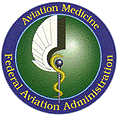Could We Do Better With Less Regulation?
Commentary And Analysis By Gene Yarbrough
Is it possible to repeal the third class medical for the flying
public? The FAA has alluded to the possibility during the
rulemaking committees when they were forming the LSA regulations
but little has been mentioned since. There seems to be a grass
roots ground swell forming to remove the third class medical
certification as the realization that LSA hasn’t effectively
addressed all the issues that people have. While the LSA program
has certainly eliminated much regulatory pressure there still
exists a smaller (but significant) group of people with certain
issues that reject them from a third class medical and align in
such a way as to prevent them from obtaining LSA pilot training and
certification. The barriers that still exist are preventing many
capable people from enjoying the personal aviation sector.

Folks that have had a medical denied or revoked fall into this
category and people who are sufficiently heavy and not able
to take flight lessons in LSA aircraft also face particular
hardships if they have underlying medical conditions that preclude
them from obtaining a third class medical. For example:
a person too heavy for training in an LSA (and it doesn’t
take much over 200 lbs to fall in this class), with diabetes (whose
blood glucose is suitably controlled via medication) that
physically is capable of operating an aircraft. This person is
forced to train in a Part 23 aircraft, which requires a third class
medical to solo and test in. Diabetes Mellitus is the first item on
the list of medical conditions that would reject a candidate for a
third class medical. The FAA has issued third class medicals to
applicants with diabetes but the qualification of that person and
the associated testing is expensive, convoluted, and questionable
as to whether or not it effectively discerns those that are not
medically fit to fly from those that are. Additionally the
ramifications of losing LSA privileges should one have a medical
denied are enough to deter the masses from even attempting to
obtain a medical certificate at all.
The LSA approach is to remand the question of medical fitness to
the local state drivers’ license office and the pilot
himself. Should a person have a medical condition that is
reportable by the individual’s personal physician then the
person is precluded from operating an aircraft as an LSA pilot
until the condition is resolved. Has this approach proved a
satisfactory filter to provide a proper level of safety for the
public at large? The question can only be answered with a proper
data analysis of incidents and accidents in the LSA category, which
hasn’t been done yet. However it would be reasonable to
expect numerous LSA accidents to be reported by the media which
hasn’t occurred in the 6 years since LSA has been in effect.
In fact there have been relatively few LSA accidents and none which
are medical related.

Furthermore one must call into question the purpose of the third
class medical, its effectiveness, its origins, and whether it is
still viable and necessary. The FAA has stated the purpose of the
third class medical is to establish a minimal standard of fitness
of a pilot, to assure some reasonable probability that the pilot
will not suffer an incapacitation due to detectable medical
deficiencies while flying; and this is where the rub comes in to
play. When considering physiological situations that could quickly
incapacitate a pilot only a handful come into mind: Heart attack,
hypoglycemia, hypoxia, stroke, and no doubt a few others, which are
exactly the same things, except perhaps for hypoxia, that would
incapacitate a person driving a car. There is no government mandate
to have a medical examination to drive a car as exists to fly an
airplane even though a car is arguably just as difficult to operate
and navigate as a personal airplane. Therefore what, if any,
guarantee of pilot ability at any given moment does ANY medical
certification afford? The answer can only be NONE, but let’s
be careful to not brush with too large of strokes, this is not to
suggest that all medical certificates serve no purpose. A first
class medical is renewed every six months and there is an argument
that this frequency, and its associated rigor, is capable of
determining underlying medical problems in time to employ
corrective measures so as to avoid conditions that would render the
aviator unfit. However an exam bi-yearly or every three years,
which is not much more than a self-evaluation questionnaire, does
little to provide the same level of safety or even trend
monitoring. Moreover the LSA standard of self evaluation offers a
more reasonable, and perhaps more effective, level of safety due to
the self certification requirements prior to each flight. Of course
the argument exists that each pilot must consider his fitness to
fly even with a third class medical, but the point is the result is
exactly the same regardless. Therefore the third class medical is
not in fact necessary if the LSA method renders the same level of
safety.
So why hasn’t the FAA already done away with the third
class medical? Apparently, in typical government dogma, the FAA has
stated the purpose of the LSA category provides a means to flight
for those that are not qualified for a third class medical, but
hasn’t considered all the possible, even likely scenarios
that could arise, and the FAA is loathsome to repeal regulations.
Furthermore there has been comment that should the FAA allow people
that have been previously denied a medical, or had one revoked,
engage in piloting aircraft and they cause an accident due to
medical issues the FAA could be held liable. Whereas if a person
never had a medical certificate and caused an accident the FAA
would not be held accountable because they had no knowledge of the
medical problems. This notion is again complete hogwash. How could
the FAA know anyone’s medical fitness at any moment even with
a medical certificate? A pilot is still self certifying his fitness
to operate an aircraft every time he climbs behind the controls,
even an ATP class pilot.

There is no logical reason to maintain the third class medical
certificate. There is empirical evidence via LSA and the automotive
industry to demonstrate that medical conditions, and
incapacitation, are not predictable to a degree where the current
regulations provide any measurable level of safety. We do have a
system in place whereby a person may be deemed medically unfit for
automobile operation and that seems to serve the public well as a
standard for aircraft operation. The FAA itself documented that
less than one half of one percent of aviation incidents AND
accidents are attributable to medical causes.
FAA Administrator Randy Babbitt reported at Oshkosh that the FAA
is suffering from budgetary shortfalls like the rest of the country
and that the agency is having difficulty maintaining staffing
levels to support GA activities. Repealing the third class medical
would relieve the FAA from the backlog of issuing third class
medicals, which is the preponderance of all the medicals issued,
and save millions per year.
The ground work has been laid to abolish the third class
medical. It is unnecessarily restrictive, does not provide a
suitable or logical standard, cannot guarantee a person’s
fitness from one moment to the next, and is easily replaceable by
an existing and superior model. Millions are prevented from
committing aviation by this “Iron Maiden” of regulation
and the industry as a whole suffers. Lets come together 'en
masse’ and exercise our right to have regulations changed. We
need to organize and let FAA hear our collective voices; we want
change that allows us to enjoy the freedom and flight, AND WE WANT
IT NOW!!!
 ANN's Daily Aero-Term (04.14.24): Maximum Authorized Altitude
ANN's Daily Aero-Term (04.14.24): Maximum Authorized Altitude ANN's Daily Aero-Linx (04.14.24)
ANN's Daily Aero-Linx (04.14.24) Classic Aero-TV: 'We're Surviving'-- Kyle Franklin Describes Airshow Life 2013
Classic Aero-TV: 'We're Surviving'-- Kyle Franklin Describes Airshow Life 2013 Aero-News: Quote of the Day (04.14.24)
Aero-News: Quote of the Day (04.14.24) Airborne 04.09.24: SnF24!, Piper-DeltaHawk!, Fisher Update, Junkers
Airborne 04.09.24: SnF24!, Piper-DeltaHawk!, Fisher Update, Junkers





